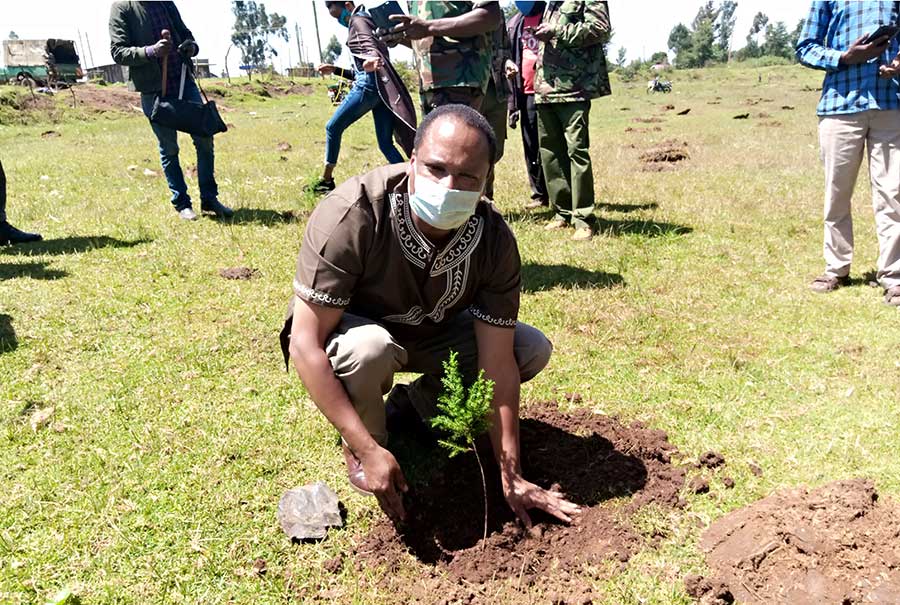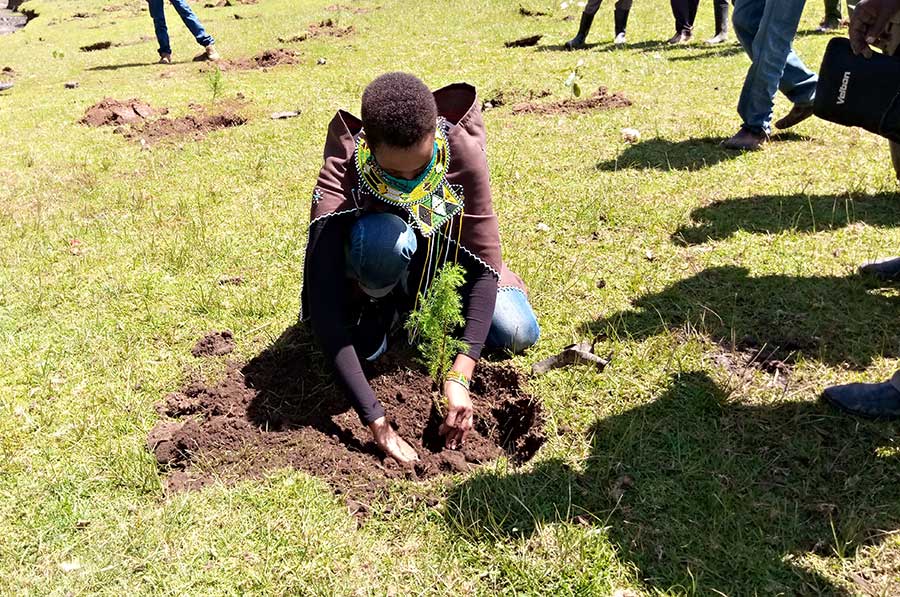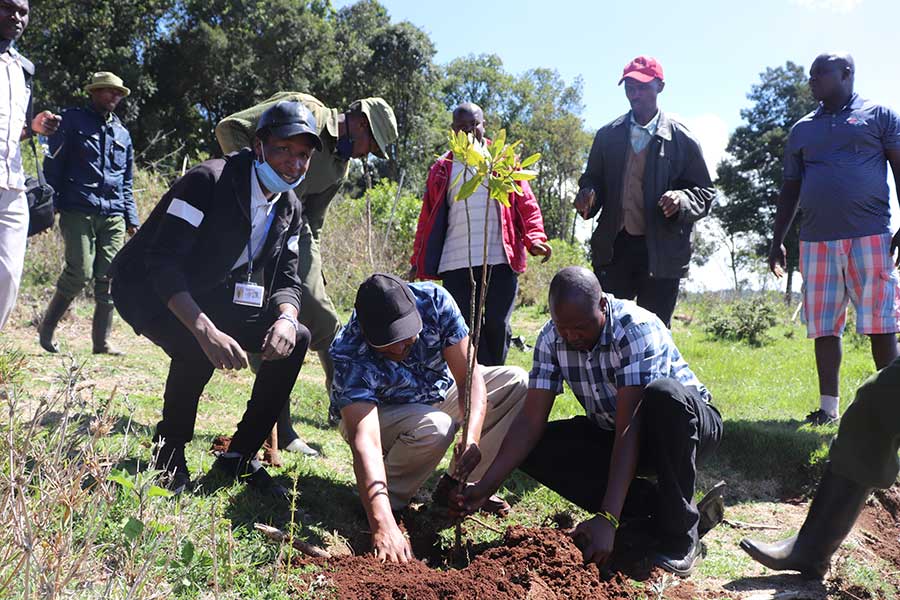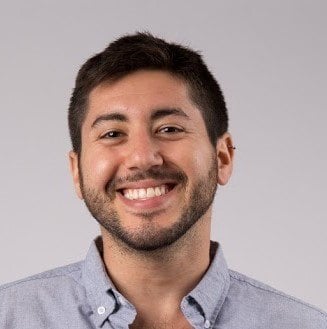
For Daniel Kobei and other leaders of his indigenous community in Kenya, May 26, 2017 marked the victory of a lifetime. Everything they’d worked tirelessly to achieve finally materialized, as they won the legal rights to their land after years of struggle.
Daniel is a member of Kenya’s Ogiek people—a small community of just over 50,000. The organization he founded and leads, the AJWS-supported Ogiek Peoples’ Development Project (OPDP), had just won a major legal victory in the internationally-recognized African Court of Human and People’s Rights. The court’s ruling secured the community’s legal claim to the land they’ve called home for generations upon generations. That day in 2017, Daniel stood with leaders of his community, wearing traditional Ogiek clothing, cheering that their homeland would finally belong to them. Elation, relief and hope were palpable.
But as many activists know too well, the road to justice can be long and winding. Victories can quickly be beset by unforeseen challenges. Now, nearly four years later, OPDP’s fight continues.
A Long Fight for Land
The Ogiek people are an ethnic minority indigenous to Kenya’s Mau forest, once a lush, endlessly green region with some of the highest rainfall in the country. The community proudly preserves their heritage and culture in the forest: for centuries, Ogiek people have lived in harmony with nature, relying on ancestral hunting and gathering practices in the biologically diverse Mau. But in recent years, the community and their forest home have been under dire threat.
For decades, the Kenyan government has been encroaching on Ogiek land, selling off tracts to the lumber industry—leaving vast swaths of this sacred forest bare and uninhabitable, and evicting Ogiek families from their ancestral homes with no regard for their safety or history. After an eight-year legal battle between OPDP and the Kenyan government, in 2017 the African Court of Human and People’s Rights, the continent’s highest institutional human rights body, unanimously ruled that the government had violated the rights of the Ogiek people. The ruling declared that the community’s land ownership must be officially recognized by Kenya, setting a precedent across Africa that could help millions of Indigenous people in the struggle to protect their homes.
For Daniel, the victory marked not only the culmination of nearly a decade of tireless work, but also restored faith that his people could continue their way of life in peace.
“The ruling will enable our community to engage in productive economic activities—gathering honey, medicinal herbs and more—without fear that their properties will be destroyed,” he says.
But the Kenyan government has been slow to implement the ruling—and in some ways has completely disregarded it. Government officials drafted up land titles arbitrarily demarcating Ogiek land within the Mau forest, but never consulted the Ogiek communities to determine where they actually live or work, a likely ploy to allow them to continue to sell the land.
“The land that these families live on is exactly where they have been living for generations,” says Daniel. “But it seems the government isn’t clear on how the implementation [of the ruling] should look. They’re acting in a skewed manner.”

2020 Wreaks Havoc in the Mau Forest
Tension between the Ogiek community and the Kenyan government came to a head last summer. In June 2020—the middle of the cold Kenyan winter, and with COVID-19 sweeping through the country—Kenyan Forest Services forces stormed through Ogiek communities, evicting people from their homes without warning. Borders of Ogiek land were not agreed upon between community members and the government—paving the way for mass evictions. The impact was swift: families were forced from their homes, taking shelter in churches, shopping centers and schools in nearby villages. Some community elders caught pneumonia and died.
What’s more, the violent expulsions took place despite a moratorium on evictions the Kenyan government had placed during the pandemic—leaving people unsure which government edict they must abide. The chaos and confusion led to violent clashes between several ethnic minority groups that had been previously co-existing in the Mau forest.
When the dust had settled, more than 1,000 Ogiek people were homeless, 70 homes had been burned to the ground and five people were dead. Months later, Ogiek families remained displaced, uprooted from their ancestral land and way of life entirely.
Daniel recalls the scene as “a total mess of humanity.”
Finding New Light, and Planting New Roots
OPDP refused to watch their community suffer, as the government needlessly delayed the process of granting the Ogiek people ownership over their ancestral land and threatened their lives by seizing their homes. In December 2020, OPDP successfully filed a court petition to hold the government accountable—thereby stopping the government from drafting or issuing land titles until property borders are determined and agreed upon in partnership with the Ogiek people.
Every step of the way, the OPDP team has not only represented the Ogiek people in court—they’ve also been pillars of their community. They know that they must keep hope alive, from village to village and family to family. Each year since the 2017 African Court ruling, OPDP has organized Ogiek community members to celebrate the victory by planting trees in their hallowed forest. In 2020, with COVID-19 limiting all gatherings, the community’s celebrations were smaller, but no less powerful. Over 5,000 new trees took root in the soil of Mau forest in the last year alone. Land that was stripped bare will bloom once again.

“Each year, we are restoring the Mau forest to its former status,” says Daniel. “I feel so great—[these trees] are our culture, our identity being rejuvenated. Their survival is our strength.”
Even after an immensely difficult year, and with unforeseen challenges surely to come, the Ogiek people remain hopeful. The Mau forest has been their home for generations, and a time will come when their country recognizes it as such. Daniel, his team of activists and the community they fight for will accept nothing less.
“What inspires me most is service to humanity, to people whose rights were denied,” says Daniel. “Once the Ogiek were not known or respected in this country, but now everybody is aware. We won at the African Court. And our rights to our land will soon be realized.”

